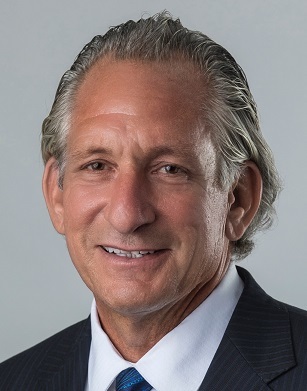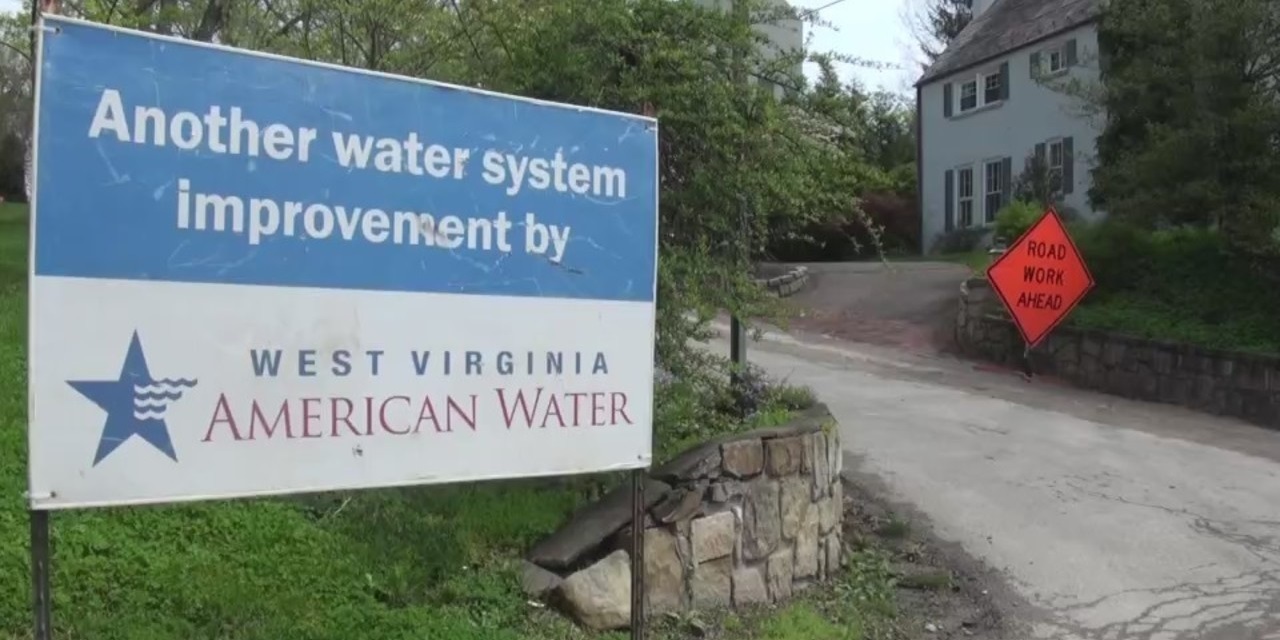CHARLESTON – The state Supreme Court has remanded a case back to Kanawha Circuit Court to redo the class certification order consistent with another recent Supreme Court ruling.
On August 31, West Virginia-American Water Company filed a petition with the state Supreme Court seeking a writ of prohibition against Kanawha Circuit Judge Carrie Webster as well as Richard Jeffries and Colours Beauty Salon LLC saying Webster’s granting of class certification in the case was improper.
On September 1, the National Association of Water Companies, American Gas Association, Edison Electric Institute, the U.S. Chamber of Commerce and the West Virginia Chamber of Commerce filed an amicus brief in support of WVAWC.

diTrapano
Jeffries and Colours, the respondents, filed a response October 8, and WVAWC filed a reply brief to that October 23. Then, in December, the court awarded a Rule to Show Cause and scheduled oral arguments for February 10.
But in the meantime, the court also issued a signed opinion in another case – State of West Virginia ex rel. Surnaik Holdings of WV LLC v. Bedell – that slightly changed how class certifications are made. That ruling made the state rules more in line with federal law, which are generally considered a little more conservative and stringent, making it more difficult for classes to be certified.
After the Bedell decision came out on November 20, attorneys for Jeffries, Colours and other potential class members filed a Motion To Remand with the Supreme Court on January 12 asking for it to be sent back to Webster to properly reflect the Bedell decision.
On January 22, WVAWC filed a response in opposition to the motion to remand. But on January 28, the Supreme Court issued the Remand Order sending the issue back to Webster and dismissed the case from the Supreme Court docket.
Chief Justice Evan Jenkins and Justice Tim Armstead would have refused the motion to remand, according to the court’s remand order.
"West Virginia American Water respects the Supreme Court’s decision to remand this action," the company told The West Virginia Record in a statement provided by counsel. "As set forth in the Writ Petition and opposition to remand, and the supporting amicus brief, West Virginia American Water opposed class certification as improper under the West Virginia Rules of Civil Procedure and will continue to pursue that position on remand."
In the plaintiff’s motion to remand, it says “this court’s Bedell decision provides critical guidance for circuit courts with respect to the findings and analyses that must be conducted and set forth in class certification orders, especially with respect to the predominance and superiority prerequisites of West Virginia Rule of Civil Procedure 23(b)(3). …
“Prior to the November 20 Bedell decision, this guidance was, by this court’s own admission, much needed and mostly missing from the prior decisions of this court.”
The motion says Bedell provides guidance regarding three required components of a “thorough analysis” of the predominance and superiority prerequisites under Rule 23(b(3), and also clearly describes the “overarching purpose” of the predominance prerequisite. It says this “is new and not derived from prior West Virginia decisions.”
“The circuit court (Webster) did not have this guidance in fashioning the class certification order at the heart of petitioner’s challenge,” the motion states. “At multiple points, this court recognized in Bedell that prior class action decisions of the West Virginia Supreme Court left circuit courts with little or no guidance as to how to analyze the predominance and superiority requirements of Rule 23(b)(3).”
Describing the leading class action case in West Virginia prior to Bedell – In re West Virginia Rezulin Litigation (2003) – the motion says the Bedell decision emphasizes that “none” of Rezulin’s 11 new class action syllabus points “specifically relate to what the circuit court is required to consider in the context of Rule 23(b)(3)’s predominance and superiority requirements.”
“This court characterized the previous decisions from the West Virginia Supreme Court on Rule 23(b)(3) as having created a ‘vague, all things considered test that does not give the circuit courts any real guidance,’” the motion states. “Needless to say, in analyzing the claims and defenses and facts of the case under the predominance and superiority prerequisites for an order filed on July 14, 2020, the Circuit Court did not have the benefit of this Court’s Bedell decision, especially syllabus point 7, which was not issued until November 20, 2020.
“As this court observed in Bedell, the prior decisions of this Court on Rule 23(b)(3) essentially amounted to a “vague, all things considered test that does not give the circuit courts any real guidance.”
Dante diTrapano, one of the attorneys for the plaintiffs, declined further comment on the pending litigation. He previously told The Record he believes the case is stronger than the other highly publicized Kanawha County case against WVAWC because it is not complicated by the competing fault of Freedom Industries and Eastman Chemical.
In July, Webster granted class-action certification in the potential class action against WVAWC regarding a 2015 leak. In the supporting memorandum supporting a motion for class certification from last February, the plaintiffs say they suffered following a “preventable and foreseeable” loss of water service by a leak in Dunbar on June 23, 2015.
In the order, the plaintiffs say they meet the qualifications to be certified as a class.
The class will be defined as all WVAWC customers, residents and businesses located within the boundaries of the defined service area of the water main that broke. The class would exclude WVAWC and its employees, judicial offers and family members, court staff assigned to the case, class counsel and defense attorneys working the case and persons or entities who opt out of the class.
Previously, the water company said it didn’t think a class certification was proper in the case.
“We continue to believe that class action is not an appropriate procedure to deal with any portion of the claims related to the 2015 water transmission main break in Dunbar,” the company told The Record. “Regardless of the ultimate resolution of the class action questions, West Virginia American Water will continue to vigorously defend its actions in response to these allegations.”
According to court filings, initial repair attempts were unsuccessful, and repair efforts created other issues. Regular service was not restored until June 27, 2015. Then, another issue on June 29 created more problems for thousands of the same customers. Regular service was not restored again until July 1.
This interruption of service occurred in what the water company calls the western Kanawha Valley District and affected a total of about 120,000 residents and businesses in Kanawha and Putnam counties.
“The western portion of the Kanawha Valley District is entirely dependent on a single large-diameter 36-inch prestressed concrete cylinder pipe (PCCP) which is known to be unreliable and prone to breaks,” the Feb. 4 memorandum states. “Indeed, dating back as far as 1989, this main broke repeatedly, approximately every 3-4 years.”
These incidents occurred shortly after the first settlement proposal was issued related to the 2014 water crisis that affected more than 300,000 WVAWC customers in nine counties. The settlement was for more than $150 million.
The original complaint says the water company had a contract with the customers who lost tap water pressure and service. It says the company also failed to maintain facilities to provide adequate and continuous service, and it says the company violated statutory obligations and was negligent.
The plaintiffs seek compensatory damages for the loss of use of residential tap water, annoyance, inconvenience, incidental expenses, lost profits and other relief. They also seek punitive damages based on what they call the company’s willful, reckless and wanton behavior in refusing to address known issues.
The plaintiffs are being represented by diTrapano, Stuart Calwell and Alex McLaughlin of Calwell Luce diTrapano in Charleston; Van Bunch of Bonnett Fairbourn Friedman & Balint in Phoenix, Arizona; and Kevin Thompson and David Barney of Thompson Barney in Charleston.
The attorneys listed as representing WVAWC are Thomas J. Hurney Jr., Alexandra Kitts and Samantha D’Anna of Jackson Kelly in Charleston as well as Kent Mayo of Baker Botts in Washngton, D.C. The amicus brief in the Supreme Court case was filed by Marc Williams, Jennifer W. Winkler and Nathan R. Hamons of Nelson Mullins Riley & Scarborough.
West Virginia Supreme Court of Appeals case number 20-0676 (Kanawha Circuit Court case number 17-C-765)
